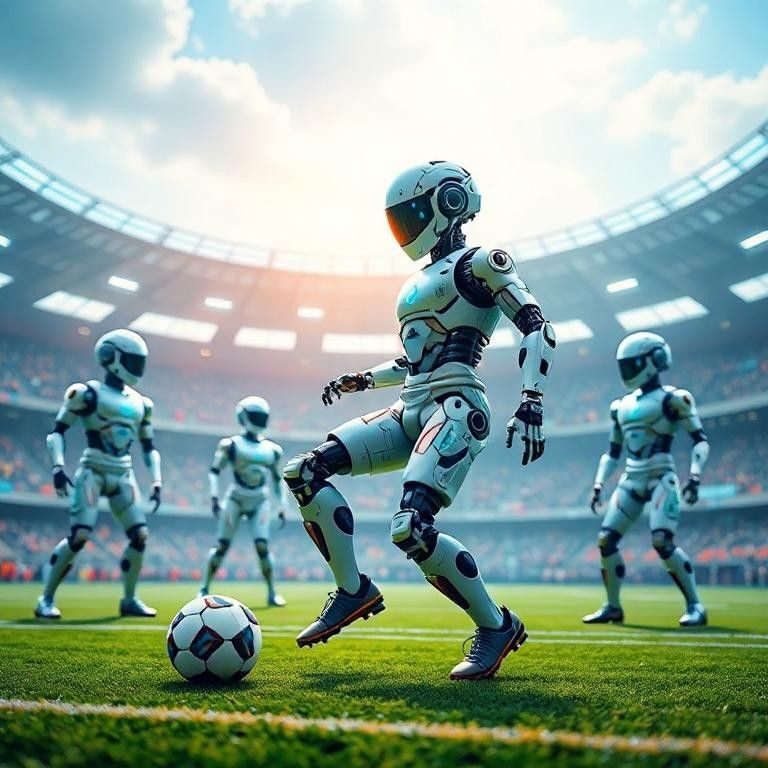
AI Robots Take the Field in Autonomous Soccer League in China
Jul 14, 2025 |
👀 91 views |
💬 0 comments
The floodlights were on, the crowd was buzzing, and stretchers were on standby. But the athletes on the field weren't human. Welcome to the RoBoLeague, China's first-ever fully autonomous humanoid robot soccer league, where the goal isn't just to score—it's to pave the way for a future where robots can beat the human World Cup champions by 2050.
In a recent tournament at the Beijing Smart Esports Event Centre, four teams of knee-high humanoid robots, developed by different universities but using standardized hardware from Booster Robotics, battled it out in a 3-on-3 competition. There were no joysticks, no remote controls, and no human intervention. Every pass, dribble, and shot was dictated entirely by artificial intelligence.
This isn't just a novelty act; it's a serious and strategic push by China to accelerate its dominance in AI and robotics. The high-stakes, dynamic environment of a soccer match serves as the ultimate testing ground for crucial AI capabilities:
Autonomous Decision-Making: Each robot processes data from its own visual sensors, analyzing the position of the ball, its teammates, and its opponents to make split-second decisions.
Collaborative Strategy: The robots are programmed to work as a team, developing formations and passing strategies on the fly.
Advanced Mobility: The tournament tests the robots' ability to walk, run, maintain balance during collisions, and even stand up on their own after a fall—though this last part doesn't always go to plan.
The matches themselves were a captivating, and at times comical, spectacle. Robots tumbled, collided, and occasionally had to be carted off on stretchers by "medical staff" for a quick reset. The skill level has been compared to that of a five- or six-year-old child. Yet, the progress is undeniable. A year ago, these competitions were slow, clumsy affairs. Today, the robots are faster, more agile, and capable of genuine strategic play.
In the final match of the recent tournament, Tsinghua University's "THU Robotics" team triumphed over the "Mountain Sea" team from China Agricultural University with a final score of 5-3.
While the action is entertaining, the ambition is monumental. Cheng Hao, the CEO of Booster Robotics, sees these games as a vital step toward a future where humanoid robots can be safely integrated into society, from logistics and elder care to, one day, perhaps even playing on a field alongside humans.
The RoBoLeague is just the beginning. Beijing is set to host the World Humanoid Robot Games in August, featuring 11 different sports. As these AI athletes continue to learn and evolve, the world watches, wondering just how long it will be before the line between science fiction and the world's most popular sport completely disappears.
🧠 Related Posts
💬 Leave a Comment
